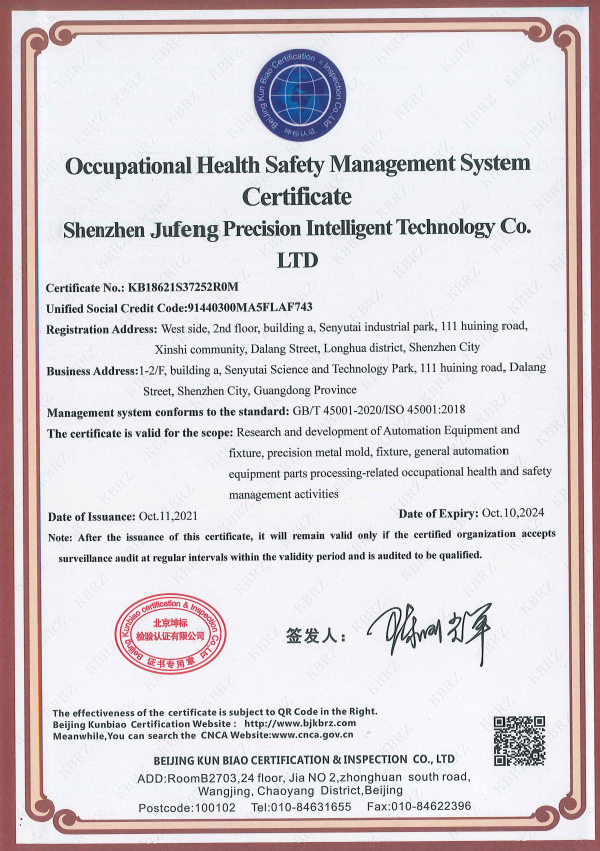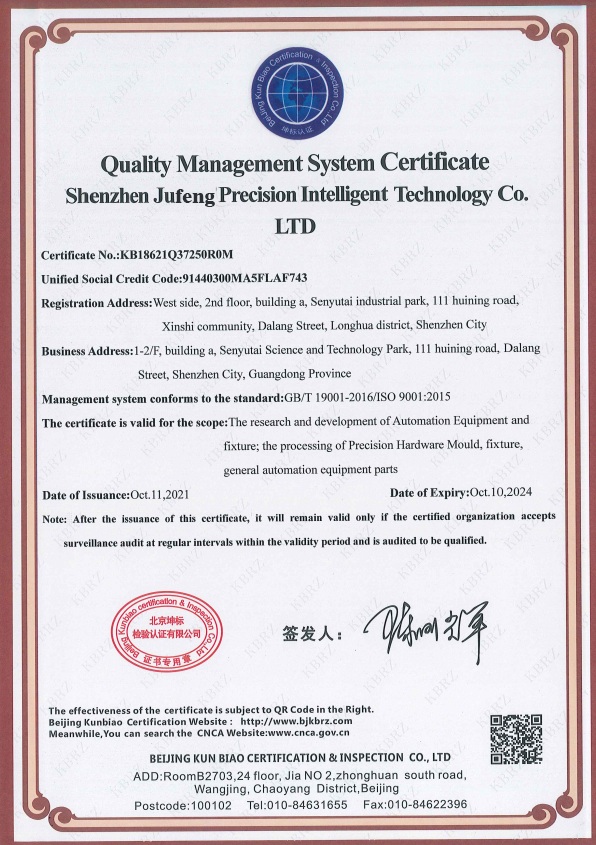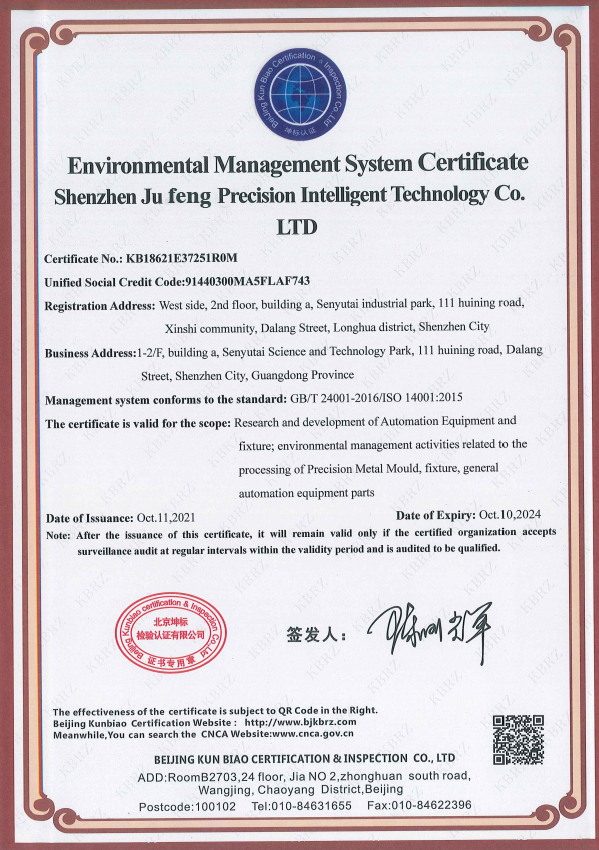News
CNC Precision Jigs: The Essential Element for Superior Industrial Manufacturing
CNC Precision Jigs: The Essential Element for Superior Industrial Manufacturing
Table of Contents
- 1. Introduction to CNC Precision Jigs
- 2. The Importance of CNC Precision Jigs in Manufacturing
- 3. Design Features of CNC Precision Jigs
- 4. Benefits of Using CNC Precision Jigs
- 5. Applications of CNC Precision Jigs in Various Industries
- 6. Integrating CNC Precision Jigs into Production Lines
- 7. Maintenance of CNC Precision Jigs
- 8. Frequently Asked Questions
- 9. Conclusion
1. Introduction to CNC Precision Jigs
Modern manufacturing is a complex interplay of technology, precision, and efficiency. At the heart of this intricate process lies the CNC precision jig. These devices play a crucial role in facilitating accurate machining operations, ensuring that components are designed and manufactured to exact specifications. CNC, or Computer Numerical Control, streamlines the manufacturing process by enabling automation and precise control over machining tools. Precision jigs are specialized fixtures that hold and support workpieces during this process, optimizing the accuracy and repeatability of machining tasks.
2. The Importance of CNC Precision Jigs in Manufacturing
CNC precision jigs are not merely accessories in the manufacturing toolbox; they are indispensable for achieving high-quality outputs. The accuracy of a jig directly impacts the quality of the finished product. By providing stability and support, these jigs minimize errors, reduce waste, and enhance the overall workflow. Moreover, they enable manufacturers to maintain tighter tolerances, thereby improving the fit and function of components in critical applications.
3. Design Features of CNC Precision Jigs
The design of CNC precision jigs is a critical factor that influences their effectiveness. Understanding the various features of these jigs helps manufacturers choose the right type for their specific needs.
3.1 Key Materials Used in Jigs
CNC precision jigs can be fabricated from various materials, each offering unique advantages. Common materials include:
- **Aluminum:** Lightweight and corrosion-resistant, making it suitable for high-speed machining.
- **Steel:** Provides durability and strength, ideal for heavy-duty applications.
- **Composite Materials:** These are increasingly used for their lightweight and high-strength properties, often utilized in specialized industries like aerospace.
Choosing the right material is essential, as it affects the jig's longevity, accuracy, and machining efficiency.
3.2 Different Types of CNC Precision Jigs
There are several types of CNC precision jigs, each tailored for specific machining tasks:
- **Drilling Jigs:** Designed to ensure accurate hole placement.
- **Milling Jigs:** Provide stability and precision for milling operations.
- **Assembly Jigs:** Facilitate the assembly of components, ensuring they fit together correctly.
- **Welding Jigs:** Help in aligning parts during welding, ensuring precision joins.
Each type is engineered for certain functionalities, optimizing manufacturing processes across various applications.
4. Benefits of Using CNC Precision Jigs
Utilizing CNC precision jigs yields a multitude of benefits for industrial manufacturers, including:
- **Increased Efficiency:** Jigs streamline the setup time, allowing for quicker transitions between tasks.
- **Enhanced Accuracy:** They minimize human error, ensuring that every component meets exact specifications.
- **Cost-Effectiveness:** Reducing waste and rework translates into significant cost savings in the long run.
- **Improved Safety:** By providing stable support, jigs reduce the risk of accidents during machining operations.
These advantages reinforce the critical role that CNC precision jigs play in the modern manufacturing landscape.
5. Applications of CNC Precision Jigs in Various Industries
CNC precision jigs find applications across a broad spectrum of industries, showcasing their versatility and importance.
5.1 Automotive Industry
In the automotive sector, precision is paramount. CNC precision jigs are used for machining engine components, chassis parts, and more, ensuring that each piece fits precisely to enhance vehicle performance and safety.
5.2 Aerospace Industry
In aerospace manufacturing, where tolerances are extremely tight, precision jigs are indispensable. They support the machining of complex components, ensuring they meet stringent safety and performance standards.
5.3 Electronics Manufacturing
The electronics industry also benefits significantly from CNC precision jigs. These jigs facilitate the assembly and testing of intricate electronic components, ensuring reliability and functionality in devices ranging from smartphones to complex machinery.
6. Integrating CNC Precision Jigs into Production Lines
The effective integration of CNC precision jigs into production lines requires careful planning and execution. Key considerations include:
- **Workflow Analysis:** Evaluate existing processes to identify where jigs can enhance efficiency.
- **Customization:** Design jigs tailored to specific components and tasks, ensuring maximum utility.
- **Training:** Equip operators with the skills needed to utilize jigs effectively, maximizing their benefits.
Successful integration can lead to significant improvements in production speed and quality.
7. Maintenance of CNC Precision Jigs
Proper maintenance of CNC precision jigs is crucial to ensuring their longevity and effectiveness. Regular inspections, cleaning, and timely repairs are essential practices. Additionally, monitoring wear and tear can help prevent costly downtime and ensure consistent manufacturing quality.
8. Frequently Asked Questions
1. What is the primary purpose of CNC precision jigs?
CNC precision jigs are designed to hold and support workpieces during machining processes, ensuring accuracy and repeatability.
2. How do CNC precision jigs improve manufacturing efficiency?
By reducing setup time and minimizing errors, CNC precision jigs streamline operations, leading to quicker production cycles.
3. What materials are best for CNC precision jigs?
The best materials depend on the application, but common choices include aluminum for lightweight tasks and steel for heavy-duty applications.
4. Can CNC precision jigs be customized?
Yes, CNC precision jigs can be tailored to meet specific needs based on the components and tasks involved in the manufacturing process.
5. How often should CNC precision jigs be maintained?
Regular maintenance is essential; inspections and cleaning should be conducted frequently, depending on usage conditions, to prolong the jigs' life and performance.
9. Conclusion
CNC precision jigs are a cornerstone of high-quality industrial manufacturing. Their ability to enhance accuracy, efficiency, and safety makes them essential tools in various sectors, including automotive, aerospace, and electronics. As industries continue to evolve, the adoption of CNC precision jigs will play a vital role in meeting the challenges of modern manufacturing. By investing in these innovative solutions, manufacturers can ensure that they remain competitive and capable of delivering top-notch quality in their products.




